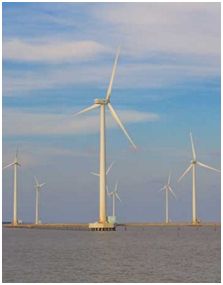 ReConnect Africa is a unique website and online magazine for the African professional in the Diaspora. Packed with
essential information about careers, business and jobs, ReConnect Africa keeps you connected to the best of Africa.
ReConnect Africa is a unique website and online magazine for the African professional in the Diaspora. Packed with
essential information about careers, business and jobs, ReConnect Africa keeps you connected to the best of Africa.

 |
The Interview of a Lifetime: An analysis of visa denials and international student flows to the US African students who apply to study at universities and colleges in the United States experience the highest visa refusal rates of all international students applying to study in the US with more than half of all applicants rejected in 2022. The refusal rate of 54% of student visas in 2022 is up from 44% in 2015 and by 2030, just seven years from now, young Africans are expected to constitute 42% of the world’s youth population, and by 2050 are expected to number 1.1 billion. In this report, the Presidents’ Alliance and Shorelight.provide a data-driven lens to a widely reported trend: students from the Global South, and the African continent in particular, are denied visas to study in the U.S. at disproportionately higher rates than the rest of the world. The Interview of a Lifetime: An analysis of visa denials and international student flows to the U.S. report seeks to support evidence-based policymaking by examining visa adjudication trends over an eight-year period between 2015 and 2022, a period that spans three presidential administrations. Read the report HERE |
 |
On July 11, 2003, African heads of state and government representatives gathered in Maputo, Mozambique, to adopt one of the most important, comprehensive, and progressive legal frameworks for women’s rights the world has ever seen. Twenty years later, the Protocol to the African Charter on Human and Peoples; Rights on the Rights of Women –also known as the Maputo Protocol – remains a crucial instrument in recognizing, promoting, and safeguarding the fundamental human rights of women and girls across Africa. To mark the 20th anniversary of the Maputo Protocol and to promote the continued adoption and implementation of its progressive provisions, a landmark report has been prepared by the Solidarity for African Women’s Rights Coalition (SOAWR), Equality Now, and Make Every Woman Count (MEWC), titled 20 Years of the Maputo Protocol: Where are we now? The full report summarizes the progress that has been made in Africa to date toward the ratification, domestication, and implementation of the Maputo Protocol, with a series of detailed case studies illustrating some key achievements and challenges along the way. This evidence is presented alongside recommendations from SOAWR Member Organizations to support States in their continued efforts towards advancing gender equality on the continent. Read the full report HERE |
 |
Global Africa: Africa in the world and the world in Africa. Africa is now projected to become the fastest growing region globally, outpacing Asia, according to a new report by the Mo Ibrahim Foundation. It is reported that six out of the ten fastest growing economies in 2023 are African countries. With a ready market of more than 1.4 billion people, the African Continental Free Trade Area surpasses the European Union single market, U.S.-Mexico-Canada Agreement and Southern Common Market combined. The report, which is based on the United Nations Department of Economic and Social Affairs, highlights that Africa is the world's youngest continent and projected to be the only region whose population will grow significantly from 2060. The population in Africa is already twice that of Europe, with over 2.2 billion people. It attributes that there is no green global economy without Africa's natural resources, which accounts for 30% of the world's mineral reserves, many of which are critical to renewable and low-carbon technologies. Read the report HERE |
 |
Scaling Up Private Finance for Clean Energy in Emerging and Developing Economies. Annual clean energy investments in emerging and developing economies will need to more than triple from $770 billion in 2022 to as much as $2.8 trillion by the early 2030s to meet rising energy needs and align with the climate goals set out in the Paris Agreement. According to the report prepared by the International Energy Agency (IEA) and the International Finance Corporation (IFC), public investments alone would be insufficient to deliver universal access to energy and tackle climate change and can be used most effectively for blended finance. In turn, two-thirds of the finance for clean energy projects in emerging and developing economies (outside China) will need to come from the private sector, rising from today’s $135 billion to as much as $1.1 trillion a year within the next decade. Lifting barriers will help emerging and developing economies benefit more fully from the opportunities of the new global energy economy and expand opportunities for private investors. The report emphasizes the need to strengthen regulatory frameworks and improve access to finance to help governments overcome obstacles that deter clean energy investments today, including relatively high upfront costs and a high cost of capital. It also estimates that $80-$100 billion of concessional financing will be needed annually by the early 2030s to attract private investment at scale for projects that involve newer technologies that have yet to scale and are not yet cost-competitive in many markets.There is also potential for issuing more green, social, sustainable, and sustainability-linked bonds – if industry guidelines, harmonized taxonomies and robust third-party certification are developed. Read the report HERE |
